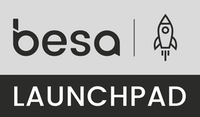Assessment and Personal Development Education

I got a Grade C for my O' level maths (showing my age here!) which was probably a fair assessment of my attainment at that time. However I have always felt disappointed that the effort I put in didn't result in a higher grade. I can only imagine how I might have felt if I had been awarded a Grade C in EPR (Education for Personal Relationships), which is what my secondary school called personal development lessons. How would I have felt getting a C compared to fellow classmates that got an A? Are they better people than me? What about those that achieved an E or even failed the subject?
Fortunately this subject was never assessed in this way, and for good reason. However this imaginary vignette encapsulates why assessment in personal development education (PSHE) can be tricky, and why many schools have avoided it altogether.
There have been recent moves towards assessing PSHE/ health and wellbeing lessons in recent times with the advent of Curriculum for Excellence in Scotland and for schools in England the introduction of statutory Relationships, Sex and Health Education from September 1st this year. This means that schools are now being compelled to look at how pupil progress is tracked and assessed, and it can be a minefield given the potential it has to damage pupil self-esteem, and the additional burden on staff.
Some schools (and published PSHE programmes) have gone down the route of producing a series of assessment statements, as we might for other subjects. These may be published in a learning ladder format, or criteria for working towards, at and beyond. While this can provide a helpful benchmark, care must be taken with type of assessment. For a start, who created the statements and made judgments about what a student's personal development should be 'at' by a certain age? We know that kids just don't develop this way. In my role as an independent consultant working for other resource companies I have written such statements, and having gone through that process I wonder whether what I created was actually valuable for the students or was it just about making life easier for teachers? Do the statements I created have the potential to damage pupil wellbeing if not used appropriately? We are back to that Grade C thing again!
As a consequence when looking at what assessment we would include as part of Chameleon's secondary scheme of work, we went back to the drawing board and put pupils (as they should be) at the heart of the assessment process. Using ipsative assessment throughout our materials and guidance means that each pupil has their own individualised assessment, managed by them, and no measuring against arbitrary criteria that someone like me, or a teacher has dreamed up.
Ipsative assessment is where a pupil's measured progress is a comparison from where they started out, compared to where they end up. This could be over the course of lesson, a topic, a term and year. Pupils can reflect in what they know, think about a topic, and what skills they have at the beginning of the teaching input and then again at the end. Chameleon teaching materials have a wealth of activities in each plan that can either be used as this 'baseline' assessment or at the end of a piece of learning. Each pupil is making their own self assessment and are not comparing or being compared against age-expected 'norms'. This feels more in the spirit of personal development education.
For more formal recording of pupil attainment we have developed a unique 'Student Profile' that can be used at set points each year for pupils to reflect upon and record their learning in an appropriate and emotionally 'safe' way. So what is the role of the teacher? We recommend that the teacher also plays a part in the assessment process by adding positive and validating comments on the student profile which support the pupil's own self reflections. No grades, no 'marking', instead meaningful and encouraging comments at set points in each academic year, which the school can decide.
Returning to my Grade C analogy, I think I would have been OK with this type of assessment!
If you would like to know more about assessing Personal Development Education please log in to your free Chameleon PDE account where you can work through a short piece of online training. If you are interested in purchasing Chameleon resources, including our assessment materials visit the Secondary resources page on the website.




